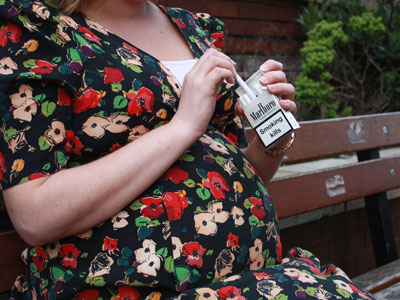
Latest research findings
Sitting within the context of general child and family social work assessment, pre-birth assessment has received limited research attention and occupies a small section of the assessment literature base.
Corner (1997) pre-dates current legal and procedural guidance but does identify that pre-birth assessment is complex partly because the foetus has no legal status.
My own 2012 PhD study, Pre-Birth Assessment in Social Work, considered the legal and procedural framework in England, local safeguarding children board procedures and a case study of pre-birth social work assessment practice in one local authority.
The study highlighted contradictions in the statutory guidance as there was a requirement to protect unborn children without recognition of the absolute rights of the mother or acknowledgement of recent scientific knowledge surrounding foetal and brain development. In relation to frontline practice the study noted how social workers were struggling with high caseloads and managerial systems, which resulted in pre-birth assessment taking only a narrow risk management approach.
On-going research at the University of Dundee highlights the importance of multi-agency work in pre-birth assessment. The research looks at a multi-agency pre-birth assessment team in Scotland working with families where there are significant concerns about drug and alcohol use.
This research has highlighted the importance of midwifery and adult-based professionals in the process of assessment, particularly in relation to supporting maternal engagement in the process. Moreover the wider professional perspective is invaluable in providing in-depth knowledge upon which to base child protection decision making.
Removing a baby at birth for child protection reasons impacts on attachment and bonding. However, allowing a baby to be discharged from hospital to a family who are unable to provide appropriate protection may result in irreparable harm to, or even the death of, the baby. The importance of good, clear pre-birth assessment cannot, therefore, be understated.
The impact resesarch should have on practice
One of the first practice challenges for social workers completing a pre-birth assessment is the procedural contradictions which suggest pre-birth assessment should be treated as per any other assessment whilst the legal power to intervene is not applicable until birth.
It is important for social workers to recognise this contradiction and to realise that to complete a good assessment it is important to focus on parental engagement and make use of the duration of the pregnancy to work with the family and with the professional network around them.
It is here that the role of the midwife is crucial as they are in a position to form a supportive relationship with the mother to enable her to recognise the importance of ensuring the baby is safe.
High caseloads and managerial systems can mean social work professionals delay the start of a pre-birth assessment because of pressure to respond to other cases and emergency situations.
One method of working around this is to recognise that engagement with a family does not necessarily mean the social worker must see them daily or weekly throughout the pregnancy. It could mean working closely with the midwife throughout, introducing yourself to the family early on but increasing involvement in the later stages of pregnancy.
Questions for social workers to reflect on
- What stage of pregnancy is the most appropriate to involve child protection practitioners?
- What can adult-focused professionals bring to the process of engagement and pre-birth assessment?
- As child development begins before birth, what responsibilities do social workers have in relation to improving the health and wellbeing of unborn children?
Find out more: Community Care Inform subscribers can read a Guide to Pre-Birth Assessments by Sue Wallbridge, practice research officer at Sheffield City Council and senior lecturer, Sheffield Hallam University
Further reading
Calder, M.C. (2003) Unborn Children: A Framework for Assessment and Intervention. In: Calder, M.C. and Hackett, S., eds. Assessment in Child Care Using and Developing Frameworks for Practice. Dorset: Russell House Publishing
Corner, R. (1997) Pre-Birth Risk Assessment in Child Protection. Social Work Monographs, Norwich: University of East Anglia
Hart, D. (2010) Assessment Prior to Birth. In: Horwath, J., ed. The Child’s World, Assessing Children in Need. London: Jessica Kingsley Publishers


 A trauma-informed approach to social work: practice tips
A trauma-informed approach to social work: practice tips  Problem gambling: how to recognise the warning signs
Problem gambling: how to recognise the warning signs 




 Find out how to develop your emotional resilience with our free downloadable guide
Find out how to develop your emotional resilience with our free downloadable guide  Develop your social work career with Community Care’s Careers and Training Guide
Develop your social work career with Community Care’s Careers and Training Guide  ‘Dear Sajid Javid: please end the inappropriate detention of autistic people and those with learning disabilities’
‘Dear Sajid Javid: please end the inappropriate detention of autistic people and those with learning disabilities’ Ofsted calls for power to scrutinise children’s home groups
Ofsted calls for power to scrutinise children’s home groups Seven in eight commissioners paying below ‘minimum rate for home care’
Seven in eight commissioners paying below ‘minimum rate for home care’
 Facebook
Facebook X
X LinkedIn
LinkedIn Instagram
Instagram
Comments are closed.